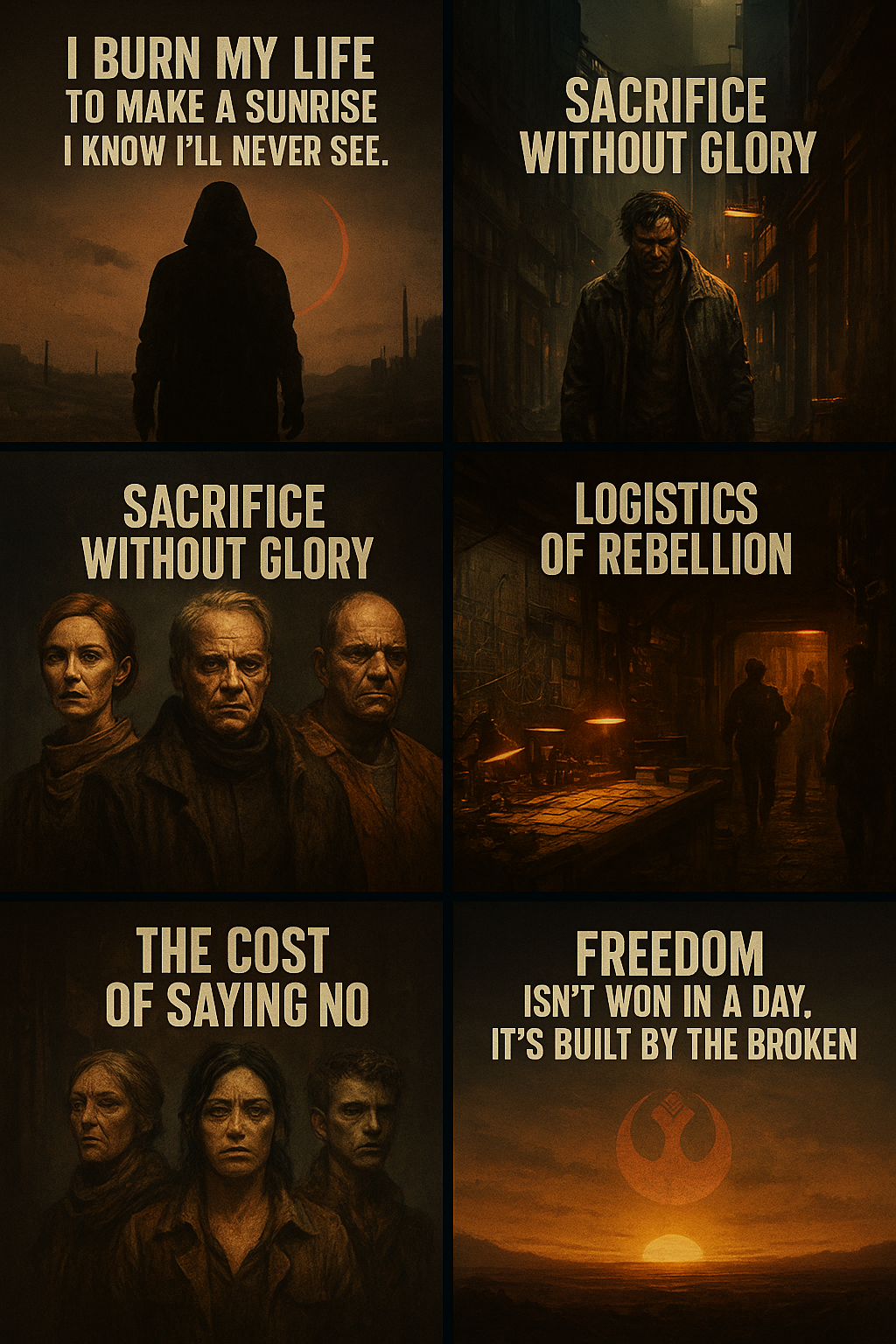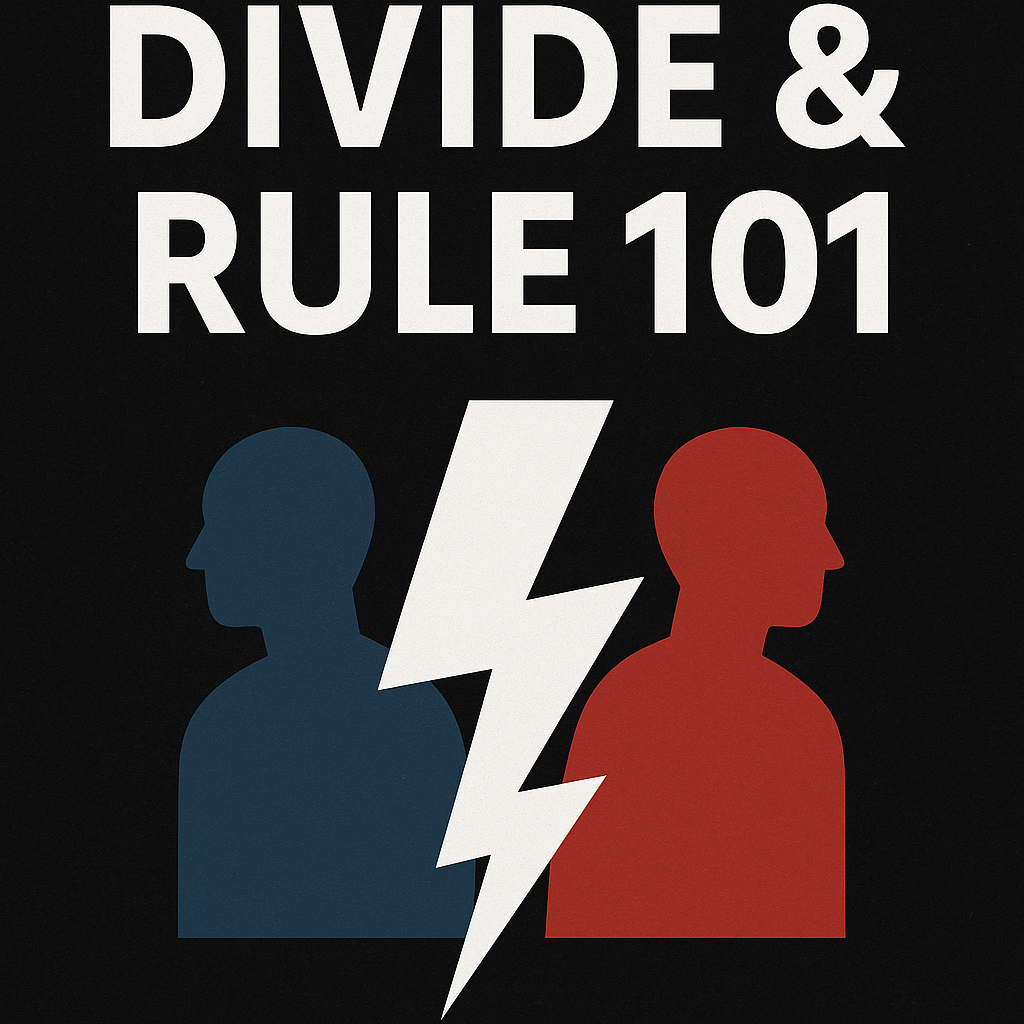“I burn my decency for someone else’s future. I burn my life to make a sunrise I know I’ll never see.”
Introduction: Rebellion is Not Romantic
When we think of rebellion, we often imagine blasters, hero speeches, and triumphs against tyranny. But Andor, the dark and thoughtful prequel to Rogue One, strips away the glossy myths of rebellion. It tells the raw, uncomfortable truth: that rebellion starts not with glory, but with grime. Not with glory-seekers, but with silent architects—people who endure moral compromise, deep isolation, and lifelong sacrifices to ignite freedom’s first flame.
This is a rebellion not of heroes, but of ghosts.
1. The Spark Is Personal, the Struggle is Collective
In Andor, Cassian doesn’t begin as a believer. He’s a survivor—apathetic, skeptical, traumatized. But he is slowly drawn into something larger than himself, reflecting the core truth: rebellion begins at the personal level. It starts with people like Cassian, who reach a breaking point. It starts with pain, loss, and injustice that can no longer be ignored.
“Oppression breeds revolution, but only when the oppressed believe their suffering is not inevitable.”
Rebellions do not start as organized resistance—they begin as isolated sparks, angry whispers in the dark, private defiance in public silence. And only over time, through trust, connection, and a shared sense of injustice, do these sparks begin to converge.
2. The Price of Rebellion is Paid in Silence
The real theme of Andor is sacrifice. Every character—Mon Mothma, Luthen Rael, Bix Caleen, Kino Loy—is forced to give up something permanent: their security, their reputation, their principles, or their peace. Some, like Luthen, willingly walk into moral compromise.
“I’m condemned to use the tools of my enemy to defeat them.”
He is not a spotless savior. He manipulates, lies, sacrifices lives—and he does it because someone has to. He knows he is burning his soul to light the path for others. This is the truth of resistance: those who carry the early weight of rebellion are often never thanked, only broken.
3. Rebellion Requires Bureaucrats and Smugglers Alike
Andor excels at showing the nuts and bolts of rebellion. Intelligence networks, black market smugglers, bank transfers, secure communications, logistics—these aren’t exciting, but they are essential. Mon Mothma’s scenes with Coruscanti bankers may seem dull, but they are revolutionary in their own right.
Without financing, without intelligence, without supply chains, no rebellion survives.
Luthen doesn’t just deal with spies—he deals with suppliers. He organizes secret meetings, brokers weapons, and calculates losses. The show reminds us: rebellion is as much paperwork and paranoia as it is explosions.
4. There is No Glory—Only Grit
Revolutions are messy. They require people who are willing to:
- Betray friends to save the mission.
- Go to prison to build alliances.
- Stay silent while tyrants scream.
- Die with no one knowing their name.
The series dismantles the notion that good guys wear white and bad guys wear black. Instead, it shows moral ambiguity. Luthen sacrifices 50 rebels for the bigger picture. Cassian kills to survive. Syril Karn, the antagonist, thinks he’s restoring order. This moral tension is not weakness—it’s truth. Real revolutions exist in the gray.
5. The Rebellion Begins With One Word: No
It may not start with blasters, but it does start with someone saying: No.
- When Cassian says no to being arrested for nothing.
- When Maarva says no to submission.
- When Kino says no and leads the prison break.
- When Nemik dies writing a manifesto of resistance.
These moments matter more than any final battle. They reveal that the most powerful act in the face of empire is refusal—refusal to conform, to stay silent, to obey.
6. Rebellion is Built by the Broken
Everyone in Andor is wounded. Loss is their shared language. Their trauma becomes the soil from which resistance grows.
- Cassian’s abandonment and exile.
- Mon Mothma’s hollow marriage.
- Luthen’s loneliness.
- Kino’s imprisonment.
- Bix’s torture.
- Maarva’s quiet endurance.
Revolutions are not born of ease. They are forged in suffering—and often by people with nothing left to lose.
Conclusion: The Sunrise They’ll Never See
Luthen’s words summarize the soul of Andor. This rebellion is not about victory—it is about hope. Hope for a future where others can live freely, even if you cannot. It is a reminder that:
- Some must plant trees under whose shade they will never sit.
- Some must burn their lives to light the way.
Andor teaches us that freedom isn’t won in a day. It is built—slowly, painfully, by the invisible hands of those who dared to resist when resistance looked like madness.
The rebellion didn’t begin with Luke Skywalker. It began with people like Luthen. And Cassian. And you.






